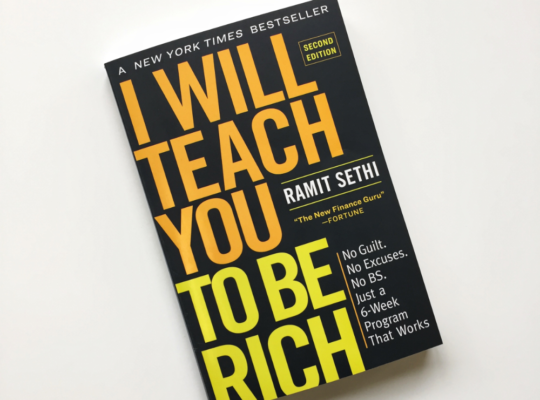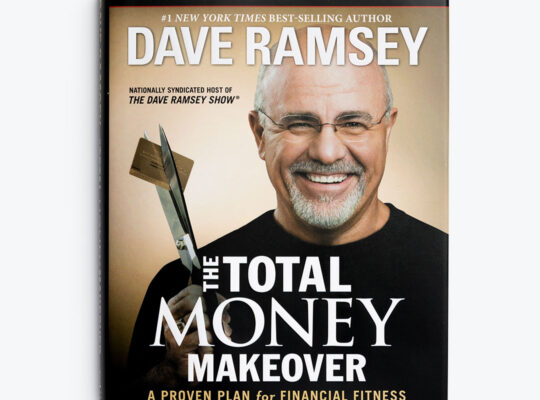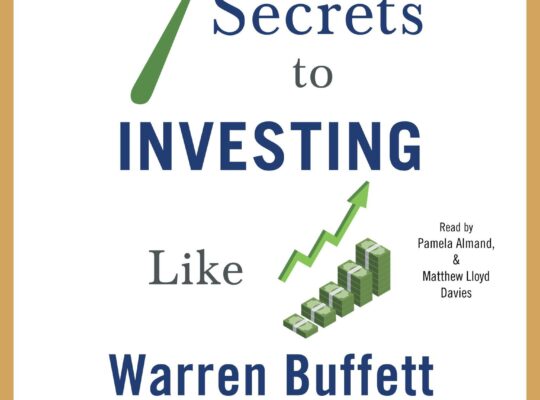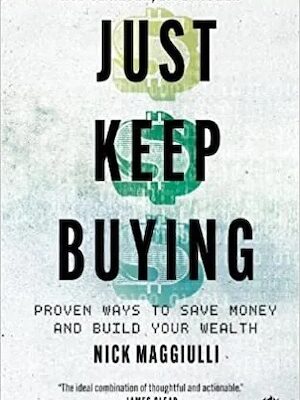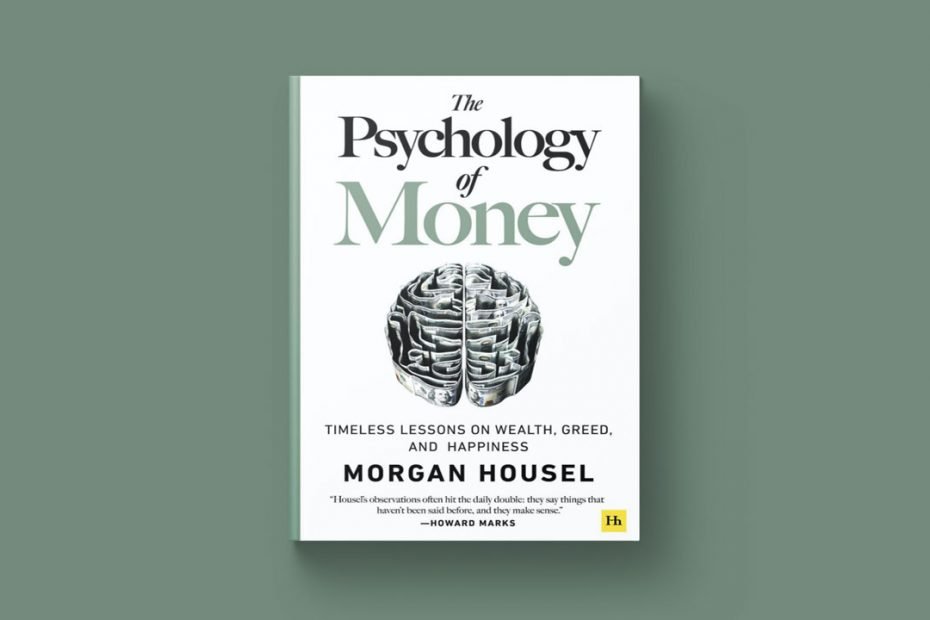
The book ‘The Psychology of Money’ explores how money functions in the actual world. Economists’ concepts are rarely the driving force behind financial actions. Indeed, a variety of reasons influence our financial decisions, ranging from personal background to confidence to greed. The outcomes are usually startling and intriguing.
The author Morgan Housel is a Collaborative Fund partner and a financial writer who has written for the Motley Fool and the Wall Street Journal. He is located in Seattle and has received several accolades for his writings.
You will find in this book – ‘Psychology behind financial decisions’:
According to the author, the human aspect, or the interaction between real humans and their money, is the key to comprehending financial decision. If you want to understand the reasons why individuals go into debt or lose their riches, you aren’t required to look at macroeconomic issues like interest rates; instead, you need to look at personal greed and enthusiasm.
Everyone has their own experience of money life:
Not only do the affluent and poor have diametrically opposite economic situations. When it comes to money, people from diverse areas of life learn quite different messages about things like risk and return. There may have been some who would have done well financially even if the economy had been in a slump.

The same is true for equally wealthy people, depending on their specific life circumstances. A wealthy person who grew up through periods of tremendous inflation, for example, will have a unique financial perspective than a similarly affluent person who has only ever seen steady prices. The lessons learned from these many viewpoints impact what we do with money.
We know less about the psychology of money than we’d like to believe.
Personal experience determines investment decisions:
According to a study conducted by certain economists, the aspect that impacts how individuals invest their money is based on what the economy was up to when the investors were young adults. Our risk-taking behaviour is influenced by our personal past. For instance, if inflation was strong during an investor’s early twenties, they were far less likely to make investments in bonds later in life. On the other hand, if inflation was low throughout these early years, investors were content to keep investing in bonds as they grew older, regardless of whether inflation increased along the way.
Stocks follow a similar path. If the stock market was performing well during their early twenties, investors continued to invest in it; if it was underperforming at the same age, they ignored it.
As a result, investment decisions remained unchanged even as the market changed direction. Research demonstrated that real-world evidence was ineffective in changing early-life intuitive judgements.
We are still very new to the economic concepts that we use today:

We haven’t totally removed the deeply ingrained tendencies of us. Humans are continually learning how to handle money. The first money was established in 600 BC, when King Alyattes of Lydia produced his own coins in an Iron-Age kingdom in modern-day Turkey.
The notion of social security, or merely retirement, was not adopted until after World War II. It indicates that one of the most fundamental economic principles we employ today is less than two generations old.
The primary way of supporting retirement was just adopted 50 years ago by governments across the world. Several important economic concepts and behaviours aren’t much ancient. Hedge funds barely became popular a quarter-century ago, while index funds are only 50 years old. Consumer debt, such as home loans, vehicle loans, and credit cards, have only recently become popular as one of the key drivers of global economic development.
We’re not insane; we’re just inexperienced when it comes to financial management and decision-making. So why are so many of us so lousy with money boils down to the fact that handling money it is relatively new in the big spectrum of things.
Luck plays a key role in financial success:
We haven’t yet figured out how much luck plays a part in successful investment. We think it’s impolite to credit other people’s investing success to random chance. As a result, we frequently overlook the significance of chance in financial judgement.

Humans frequently undervalue or overestimate the influence of chance in financial success. If we succeed in investing or saving money, it is because we made an effort; but if we fail, it is because we were unfortunate. We aren’t nearly as forgiving when others fail. In certain circumstances of investing, we ascribe failure to character faults such as laziness or short-sightedness, rather than poor luck. This is not limited to investment and will apply to many aspects of daily life.
Our culture does not honor outstanding investors who went bankrupt because they were unfortunate and the market crashed. It does, however, honor substandard or irresponsible investors who struck gold.
For better decisions, focus on broad cases rather than specific cases:
We shouldn’t become fixated on certain people as examples. When we analyse extremely successful people, we tend to focus on outliers – billionaires who have revolutionised the way that things work – and this might lead us misguided.
To assist with better choices, it’s best to focus on general instances rather than individual cases.
It is hard to duplicate good fortune. Even if you replicate every professional move of someone like Warren Buffett, you can’t guarantee the cards will fall the very same way for you.
What you can do is continue to examine trends of accomplishment and failure. The more prevalent a success pattern, the more probable it is to apply to your life and financial choices. According to studies, persons who have control over the organization of their days are more contented at work than those who do not.
Greed can make you irresponsible:
Capitalist system excels at two things that are diametrically opposed: producing riches and developing greed.
Consider a novice baseball player earning $500,000 per year. He’s wealthy by any realistic definition. Nevertheless, suppose he is on the same team as a top superstar who earns $36 million a year. Now, the junior baseball player is dissatisfied with his pay. He desires what others possess.
Meanwhile, folks with a lot of money relate themselves to others with much more money. Greed has no moral ramifications in a capitalist society. But, there is a pragmatic issue. Greed may lead to terrible decisions, and the cost of those decisions is far greater than the potential profits. Leaving chances on the table does not always imply that you are losing out. It’s typically the understanding that striving to consume everything will lead to remorse.
Building a wealth is easier than preserving it:

It turns out that becoming rich is sometimes a lot easier than remaining rich. It’s simple to see why those who excel at one typically struggle with the other.
The author uses the example of Jesse Livermore, a share market trader in the early twentieth century, to demonstrate this. He was born in 1877 and helped to create Wall Street. He had a current-day net worth of $100 million by the time he was 30.
Right before the 1929 stock market crash, Livermore made the finest choice of his career: he went short and speculated that equities would fall. The market, indeed, lost one-third of its overall worth. Although fortunes were being liquidated and rumours of insolvent investors jumping from office windows circulated, Livermore came home to his family with the good news. He had during the period made $3 billion in today’s money.
Was he pleased in the end? Not at all!
The drama continued, as Livermore believed he was unbeatable following his great triumph in 1929. He risked bigger and bigger gambles and lost big time after time, until his riches was erased. He committed suicide at a Manhattan bar in 1940 after being destitute and in debt.
Earning money is all about taking risks, being optimistic, and being brave. But maintaining the earned money constitutes an extremely different psychological play. It’s about the dread of losing all you’ve worked for. Being wealthy also entails remaining modest. After 1929, Livermore believed he was a mastermind who could never make a mistake. He would have been better off admitting that luck has had an impact in his achievement and that it couldn’t be duplicated continuously.
There are many Livermores out there, but their stories are rarely as heart-breaking as this one. So, how can you preserve the riches you’ve created or inherited? The key here are “persistence” and “fear.” When you’re afraid of losing, you see possible victories through a unique perspective. Few rewards are substantial enough to outweigh the risk of losing everything you own. And when you take that stance, you’re lot more likely to make sound decisions.
You can be incorrect half the time and still amass wealth:

The author calls it ‘lengthy tail’, which means the propensity of a few occurrences to make up the vast majority of results. In other words, if you get a few things right when investing, you can afford to do many stuff wrong. Loss is unavoidable; what is important is the character of your triumphs. To put it another way, the author uses the example “when you’re sitting on one Picasso, you don’t have to bother about the 99 flops in your art gallery”. This method is true for all businesses and investments. One multi-bagger stock can outperform nine other flop stocks in which you have invested.
Conclusion:
Financial or investment choice in the actual world is far more complicated than it is in economics classes. Investing decisions are frequently influenced by people’s early experiences with the economy in their young adulthood rather than analytical assessments of the present state of the markets. Simply put, financial decisions are intertwined with psychological aspects. Accepting that fate plays a part in success, learning to dread losing what you already have, and hedging your risks are the best ways ahead.
